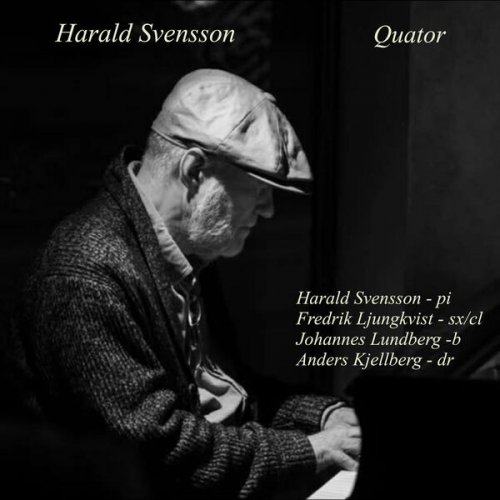Anne Horsch - Brahms: Organ Works (2008) [SACD]
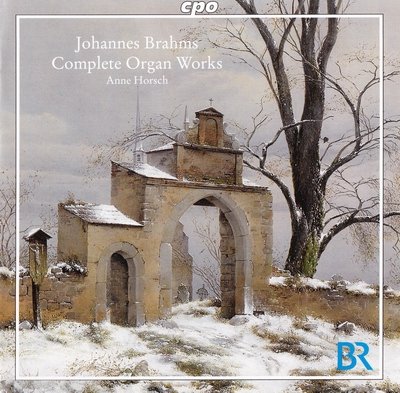
Artist: Anne Horsch
Title: Brahms: Organ Works
Year Of Release: 2008
Label: CPO - 777 384-2
Genre: Classical
Quality: DSD64 image (*.iso) / 2.0, 5.0 (2,8 MHz/1 Bit)
Total Time: 67:14
Total Size: 3.82 GB
WebSite: Album Preview
Tracklist:Title: Brahms: Organ Works
Year Of Release: 2008
Label: CPO - 777 384-2
Genre: Classical
Quality: DSD64 image (*.iso) / 2.0, 5.0 (2,8 MHz/1 Bit)
Total Time: 67:14
Total Size: 3.82 GB
WebSite: Album Preview
1. Chorale Prelude and Fugue for Organ, WoO 7 "O Traurigkeit"
2. Prelude and Fugue for Organ in G minor, WoO 10
3. Fugue for Organ in A flat minor, WoO 8
4. Chorale Preludes (11) for Organ, Op. 122
5. Prelude and Fugue for Organ in A minor, WoO 9
This marvellous disc is a fine tribute to a neglected area of Brahms’ work, and it also draws great praise for the playing of Anne Horsch.
Always known for his great musical architecture, Brahms brings a similar grasp of structure to his organ music. Importantly, however, many of Brahms’ key organ works date from emotional climaxes in his life so these are not mere academic studies in the form. The chorale prelude “O Traurigkeit, O Herzeleid” was probably written as a tribute to Schumann after his death in 1858. Horsch plays it as a touching homage, but she also includes whispers of hope and shafts of light which temper the overall mood. Forty years later Brahms composed his Eleven Chorale Preludes as a burial tribute to Clara Schumann. This remarkable sequence of works showcases the influence of Bach, whose work Brahms adored. Each piece is a profound and majestic meditation on one aspect of death. They are densely contrapuntal in nature, but there are light touches in the midst of the heavy mood, such as Brahms’ take on Es ist ein Ros’ entsprungen.
The other works on this disc showcase Brahms’s skill at counterpoint. The G minor prelude and fugue and the fugue in A flat minor are overtly Bachian and are rather astonishing in the way each layer of the music folds into the overall structure. The concluding A minor prelude and fugue is perhaps less intense, but it shows equal skill and it is astute programming to end on a (relatively) lighter note.
Throughout this recital Anne Horsch is fully aware of the emotional and structural scale of these works. This marvellous young virtuoso scales the technical heights seemingly effortlessly, and she tempers her playing most effectively for the lighter moments. She encompasses the full range of emotions in the Eleven Preludes and Fugues and she is helped by an instrument and acoustic which fit the late Romantic mood of these works very well. There is no austerity or sparseness from this organ: instead we get wave upon wave of lush Romantic sound which can at times feel almost cloying. In fact the sound on this disc is perhaps its greatest asset. The rich reverberant sound really engulfs the listener in a way I’ve seldom experienced, and you don’t need full SACD technology to appreciate. The basic stereo is very precisely placed so that it’s as though we were listening from the very middle of the church. It’s very effective and, truth be told, it suits the rich, predominantly gloomy mood of these works very well indeed.
So buy this disc for virtuosic playing of marvellous music captured brilliantly in an entirely appropriate acoustic. Well done to all involved.
Simon Thompson
This recording of the complete organ works of Brahms is distinguished by the unique, well-preserved instrument on which the music is
played, and by the compelling playing itself. The organ was built in 1887 (ten years before Brahms's death) for the Odeon, a concert hall in Munich. where Brahms, Schumann, Mahler, Strauss, Straube, and Rheinberger performed. It is one of the few extant representations of south German organ building of the late 19th century. Thus, it stands as an authentic and authoritative vehicle on which to perform Romantic German organ repertoire, including the works of Brahms. The instrument was moved to its present 10- cation in 1905. Speaking in a cavernous acoustic, it possesses strong foundational tone that is ponderous at times, yet the ensemble is not lacking in clarity. The dynamic range is remarkably wide. While the instrument possesses ample upperwork, the performer often combines reeds with principal voices, producing contrapuntal clarity. The principals are assertive, and there is plenty of individual color. The full organ thunders magnificently.
Anne Horsch is a sensitive and seasoned musician who finds the proper emotional disposition of'.each piece, imparting to it a meaningful quality. The G-minor Prelude is rendered as a virtuoso tour de force in its fiery brilliance. Horsch provides effective dynamic nuance in it and its partner fugue. The A-minor Prelude and Fugue receive a vigorous treatment, with careful attention to the polyphony as well as the virtuoso elements. She performs the Chorale Prelude and Fugue on "O Traurigkeit, o Herzeleid" and the Fugue in A-flat Minor in protracted, languorous tempos that heighten the brooding melancholy inherent in these works. Each of the chorale preludes is registered and performed in a manner that manifests the underlying affekt of the text. There are many fine renditions of the Brahms organ works on the market. This recording, featuring an instrument Brahms and his contemporaries knew well, played here with great skill and intelligence, provides invaluable insight into the authentic rendering of these beloved masterworks.
James Hildreth
Always known for his great musical architecture, Brahms brings a similar grasp of structure to his organ music. Importantly, however, many of Brahms’ key organ works date from emotional climaxes in his life so these are not mere academic studies in the form. The chorale prelude “O Traurigkeit, O Herzeleid” was probably written as a tribute to Schumann after his death in 1858. Horsch plays it as a touching homage, but she also includes whispers of hope and shafts of light which temper the overall mood. Forty years later Brahms composed his Eleven Chorale Preludes as a burial tribute to Clara Schumann. This remarkable sequence of works showcases the influence of Bach, whose work Brahms adored. Each piece is a profound and majestic meditation on one aspect of death. They are densely contrapuntal in nature, but there are light touches in the midst of the heavy mood, such as Brahms’ take on Es ist ein Ros’ entsprungen.
The other works on this disc showcase Brahms’s skill at counterpoint. The G minor prelude and fugue and the fugue in A flat minor are overtly Bachian and are rather astonishing in the way each layer of the music folds into the overall structure. The concluding A minor prelude and fugue is perhaps less intense, but it shows equal skill and it is astute programming to end on a (relatively) lighter note.
Throughout this recital Anne Horsch is fully aware of the emotional and structural scale of these works. This marvellous young virtuoso scales the technical heights seemingly effortlessly, and she tempers her playing most effectively for the lighter moments. She encompasses the full range of emotions in the Eleven Preludes and Fugues and she is helped by an instrument and acoustic which fit the late Romantic mood of these works very well. There is no austerity or sparseness from this organ: instead we get wave upon wave of lush Romantic sound which can at times feel almost cloying. In fact the sound on this disc is perhaps its greatest asset. The rich reverberant sound really engulfs the listener in a way I’ve seldom experienced, and you don’t need full SACD technology to appreciate. The basic stereo is very precisely placed so that it’s as though we were listening from the very middle of the church. It’s very effective and, truth be told, it suits the rich, predominantly gloomy mood of these works very well indeed.
So buy this disc for virtuosic playing of marvellous music captured brilliantly in an entirely appropriate acoustic. Well done to all involved.
Simon Thompson
This recording of the complete organ works of Brahms is distinguished by the unique, well-preserved instrument on which the music is
played, and by the compelling playing itself. The organ was built in 1887 (ten years before Brahms's death) for the Odeon, a concert hall in Munich. where Brahms, Schumann, Mahler, Strauss, Straube, and Rheinberger performed. It is one of the few extant representations of south German organ building of the late 19th century. Thus, it stands as an authentic and authoritative vehicle on which to perform Romantic German organ repertoire, including the works of Brahms. The instrument was moved to its present 10- cation in 1905. Speaking in a cavernous acoustic, it possesses strong foundational tone that is ponderous at times, yet the ensemble is not lacking in clarity. The dynamic range is remarkably wide. While the instrument possesses ample upperwork, the performer often combines reeds with principal voices, producing contrapuntal clarity. The principals are assertive, and there is plenty of individual color. The full organ thunders magnificently.
Anne Horsch is a sensitive and seasoned musician who finds the proper emotional disposition of'.each piece, imparting to it a meaningful quality. The G-minor Prelude is rendered as a virtuoso tour de force in its fiery brilliance. Horsch provides effective dynamic nuance in it and its partner fugue. The A-minor Prelude and Fugue receive a vigorous treatment, with careful attention to the polyphony as well as the virtuoso elements. She performs the Chorale Prelude and Fugue on "O Traurigkeit, o Herzeleid" and the Fugue in A-flat Minor in protracted, languorous tempos that heighten the brooding melancholy inherent in these works. Each of the chorale preludes is registered and performed in a manner that manifests the underlying affekt of the text. There are many fine renditions of the Brahms organ works on the market. This recording, featuring an instrument Brahms and his contemporaries knew well, played here with great skill and intelligence, provides invaluable insight into the authentic rendering of these beloved masterworks.
James Hildreth
![Anne Horsch - Brahms: Organ Works (2008) [SACD]](https://www.dibpic.com/uploads/posts/2021-05/1620113105_back.jpg)
Download Link Isra.Cloud
Anne Horsch - Brahms: Organ Works (2008) - 1
Anne Horsch - Brahms: Organ Works (2008) - 2
My blog
Anne Horsch - Brahms: Organ Works (2008) - 1
Anne Horsch - Brahms: Organ Works (2008) - 2
My blog
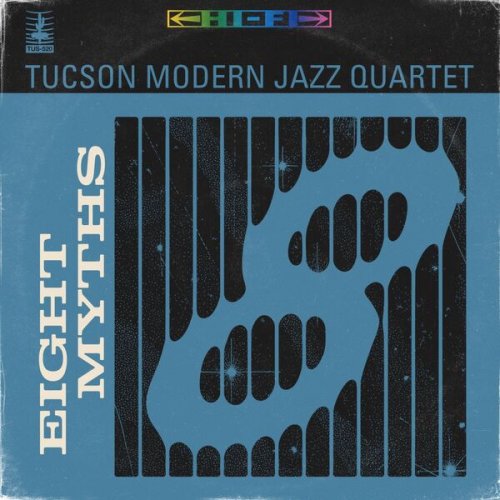



![Travis Jenkins Piano Trio - Jazz in Meanjin 020 (Live at JMI) (2025) [Hi-Res] Travis Jenkins Piano Trio - Jazz in Meanjin 020 (Live at JMI) (2025) [Hi-Res]](https://www.dibpic.com/uploads/posts/2025-12/1765862611_a2068783921_10.jpg)
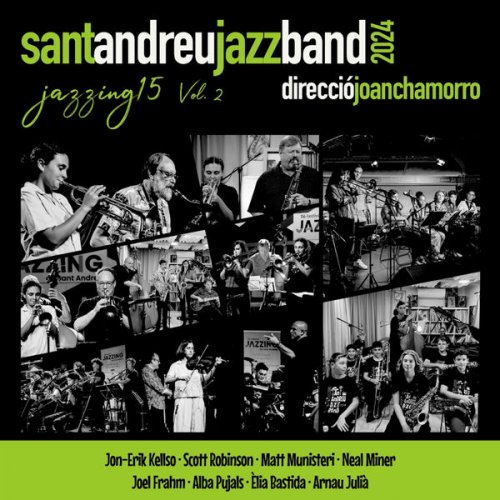
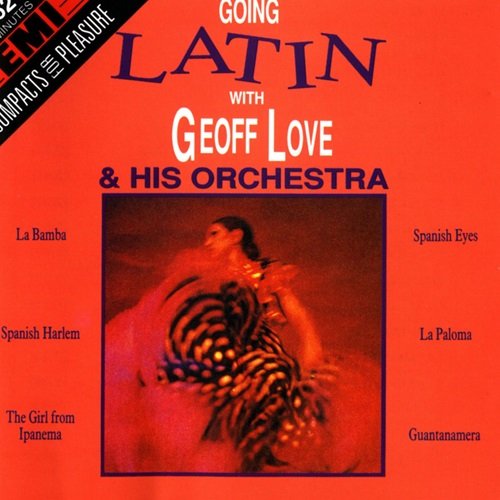
![Amira Kheir - Black Diamonds (2025) [Hi-Res] Amira Kheir - Black Diamonds (2025) [Hi-Res]](https://www.dibpic.com/uploads/posts/2025-12/1765640459_tf7wrmc9lqmqc_600.jpg)
